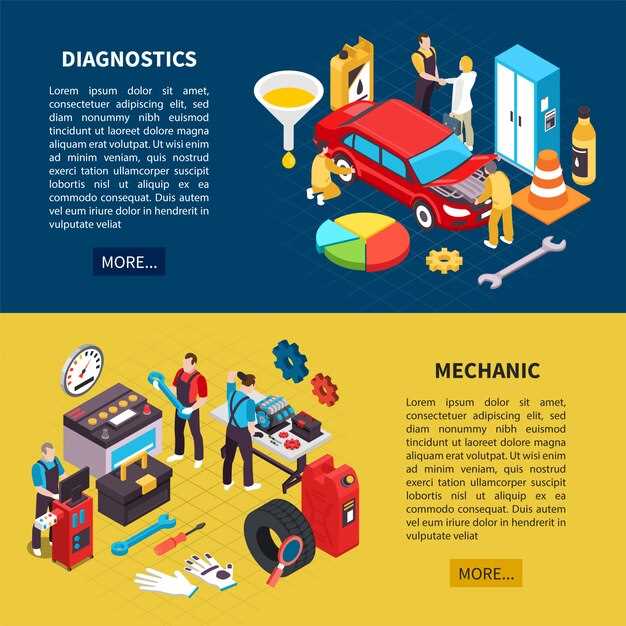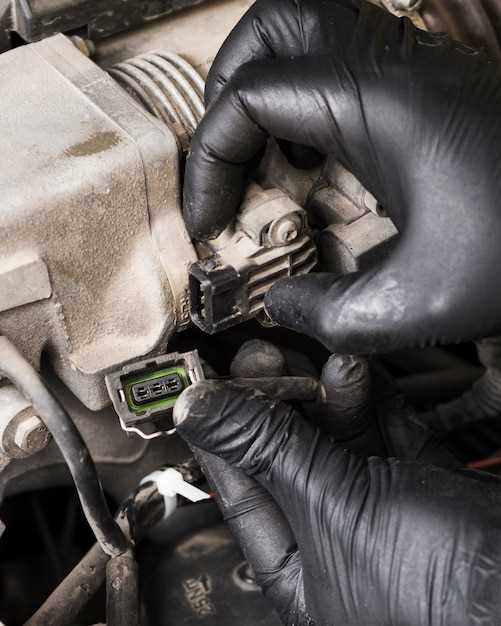
When it comes to high-performance engines, regular maintenance is crucial for ensuring optimal performance and longevity. These powerful machines are designed to deliver exceptional power and speed, but they also require a heightened level of care and attention compared to standard engines. By following specific tips for maintenance, you can keep your engine running at its peak performance, minimizing the risk of breakdowns and maximizing efficiency.
In this article, we will explore ten essential tips that every performance car owner should know. From routine oil changes to monitoring engine temperature, each tip will provide valuable insights to help you maintain the reliability and power of your high-performance engine. Emphasizing the importance of a proactive approach to maintenance, these recommendations will guide you towards a more efficient and enjoyable driving experience.
Regular Oil Changes and Quality Selection
Regular oil changes are essential for maintaining the health and performance of your engine. Engine oil plays a critical role in lubricating moving parts, reducing friction, and dissipating heat. Over time, oil can break down and become contaminated with dirt, debris, and metal particles, which can negatively impact engine performance.
Changing the oil at recommended intervals ensures that your engine operates efficiently. This not only prolongs the life of the engine but also helps in retaining optimal performance levels. High-performance engines, in particular, are more sensitive to oil quality, as they operate under higher stress and temperatures. Therefore, selecting a high-quality oil that meets or exceeds the manufacturer’s specifications is crucial.
When choosing engine oil, consider factors such as viscosity, additive packages, and manufacturer recommendations. Synthetic oils, for example, offer superior protection and performance characteristics compared to conventional oils. They can withstand higher temperatures and provide better lubrication, benefiting high-performance engines significantly.
In summary, regular oil changes and the selection of quality engine oil are vital aspects of maintenance that directly affect engine performance. By investing time and resources into these practices, car enthusiasts can ensure their engines remain robust, efficient, and capable of delivering optimal performance.
Monitoring Engine Temperature for Optimal Performance
Maintaining the appropriate engine temperature is crucial for ensuring optimal performance and longevity of your vehicle. An overheating or underheating engine can cause significant damage, leading to costly repairs and decreased efficiency. Here are essential tips for monitoring engine temperature effectively:
- Regularly Check Coolant Levels: Ensure your coolant is at the right level. Low coolant can lead to overheating. Always top up with the appropriate fluid when necessary.
- Inspect Cooling System Components: Regularly examine hoses, radiators, and water pumps for signs of wear or leaks. Faulty components can impede the cooling process and cause temperature issues.
- Utilize Temperature Gauges: Take advantage of built-in temperature gauges. They provide real-time data on your engine’s temperature, allowing you to respond promptly to any fluctuations.
- Pay Attention to Warning Lights: If your dashboard displays an engine temperature warning light, don’t ignore it. It indicates potential overheating, and immediate action is required to prevent damage.
- Monitor Engine Temperature During Extended Use: For prolonged periods of heavy driving, such as towing or off-roading, keep a closer eye on engine temperature. Increased load can raise operating temperatures.
- Check Thermostat Functionality: A faulty thermostat can disrupt the engine’s heating and cooling cycles. Test and replace your thermostat if it’s not functioning correctly.
- Use Synthetic Oil: Consider using high-quality synthetic oil, as it can withstand higher temperatures without breaking down, offering better protection under extreme conditions.
By following these tips, you can keep your engine running at optimal temperatures, ensuring peak performance and longevity.
Maintaining the Cooling System: Fluid Levels and Components

The cooling system is crucial for maintaining optimal engine performance. A well-functioning cooling system prevents overheating, which can lead to severe engine damage. Regular checks of fluid levels and system components are essential for efficiency.
Start by regularly checking the coolant level in the reservoir. Ensure that it is within the recommended range; low coolant can lead to overheating. Additionally, use the appropriate type of coolant specified by the manufacturer to maintain engine performance. Top up the fluid as necessary, but always do so when the engine is cold to avoid burns.
Inspect the radiator for signs of leaks or damage. A compromised radiator can cause significant issues, as it is responsible for dissipating the heat generated by the engine. Look out for rust or corrosion, which can affect its efficiency. If any leaks are found, repair or replace the radiator promptly.
Examine hoses and connections for wear and tear. Cracks or bulges in hoses can lead to coolant loss and overheating. Replace any damaged hoses immediately to ensure a secure flow of coolant. Pay attention to hose clamps as well; they should be tight enough to prevent leaks but not overly so that they cause damage.
Regularly inspect the thermostat, which regulates the engine’s temperature. A malfunctioning thermostat can cause overheating or improper cooling. If you notice irregular temperature readings, it may be time to replace the thermostat.
Additionally, keep an eye on the water pump, which circulates coolant throughout the engine and cooling system. Listen for any unusual noises that may indicate a failing pump. Regularly inspecting and replacing the water pump, as needed, will significantly contribute to optimal engine function.
Maintaining fluid levels and assessing components of the cooling system is vital for engine longevity and performance. Implement these tips to ensure your engine operates at its best, preventing costly repairs down the line.
Choosing the Right Fuel for Performance Enhancements

Selecting the appropriate fuel is crucial for maximizing the performance of your engine. The type of fuel used can significantly impact engine efficiency, responsiveness, and overall maintenance. Here are some key considerations when choosing fuel for enhanced performance:
- Octane Rating:
The octane rating of fuel indicates its resistance to knocking or pinging during combustion. Higher octane fuels can endure higher compression ratios and can support engines designed for enhanced performance.
- Fuel Composition:
Understand the differences between gasoline types, such as regular, premium, and racing fuels. Premium gas typically contains additives that help clean the engine and improve combustion.
- Additives and Detergents:
Use fuels with detergents and additives that promote engine cleanliness and efficiency. They can help reduce carbon deposits and improve long-term engine health.
- Ethanol Content:
Consider the ethanol content in fuel. While some engines can run on E10 (10% ethanol), high-performance engines may require lower ethanol blends or pure gasoline to avoid issues with fuel delivery and combustion.
- Ambient Conditions:
Take into account the environmental conditions in which your vehicle operates. Higher altitudes may require different fuel formulations to accommodate decreased air density.
- Manufacturer Recommendations:
Always refer to the engine manufacturer’s fuel recommendations. Using the fuel specified can help maintain performance and ensure longevity.
By choosing the right fuel, you can significantly enhance your engine’s performance, optimize maintenance practices, and ensure that your high-performance vehicle operates at its best. Proper fuel selection not only improves power output but also contributes to a healthier, more reliable engine over time.
Routine Inspection of Air and Fuel Filters
Regular maintenance of air and fuel filters is essential for ensuring optimal engine performance. These components play a critical role in maintaining the cleanliness of air and fuel entering the engine. Over time, both filters can accumulate dirt, debris, and contaminants that can hinder engine efficiency.
Inspecting air filters should be done at least every 10,000 to 15,000 miles. A clean air filter allows for proper airflow, enhancing combustion and power output. A blocked air filter can lead to reduced performance and increased fuel consumption. To maintain performance, consider replacing the air filter if it appears dirty or after the recommended mileage. Some filters can be cleaned and reused, which is a cost-effective option.
Fuel filters also require regular checks. A clogged fuel filter restricts fuel flow, leading to poor engine performance and potential misfires. Depending on the vehicle, fuel filters should be inspected every 20,000 to 30,000 miles. Replacing these filters according to the manufacturer’s guidelines prevents engine damage and maintains optimal operation.
When conducting maintenance, follow these tips:
- Always consult the vehicle’s manual for specific inspection intervals.
- Use high-quality replacement filters to ensure durability and effectiveness.
- Inspect filters for physical damage, such as tears or cracks.
- Consider the operating environment; dust and debris may necessitate more frequent inspections.
By prioritizing the routine inspection of air and fuel filters, you help maintain high-performance engines, supporting longevity and efficiency in operation.
Tire and Brake Maintenance to Complement Engine Performance
Maintaining tires and brakes is essential for the overall performance of high-performance engines. Proper care ensures that the engine’s power is effectively translated to the road, enhancing driving safety and efficiency. Here are key tips for maintaining your tires and brakes:
| Tip | Explanation |
|---|---|
| Regular Tire Inspections | Monitor tire pressure, tread depth, and sidewall condition. Uneven wear can indicate alignment issues that may hinder performance. |
| Rotate Tires Frequently | Change the position of tires every 5,000 to 8,000 miles to ensure even wear and prolong tire life. |
| Maintain Proper Tire Pressure | Check tire pressure monthly. Incorrect pressure can negatively impact handling, fuel efficiency, and overall performance. |
| Choose Performance Tires | Invest in high-quality tires designed for your driving conditions. Performance tires enhance grip, stability, and control. |
| Brake Pad Inspection | Regularly check brake pads for wear. Worn pads reduce braking efficiency and can damage rotors, impacting overall performance. |
| Brake Fluid Replacement | Replace brake fluid as recommended to maintain the hydraulic system’s effectiveness and prevent fading under heavy use. |
| Monitor Brake Performance | Pay attention to any changes in braking response. Unusual noises or vibrations can indicate issues that need immediate attention. |
| Professional Inspections | Schedule regular maintenance appointments with a qualified technician to ensure that both tires and brakes are functioning optimally. |
| Maintain Clean Wheels | Keep wheels clean to allow for proper heat dissipation from brakes and to enhance the appearance of your vehicle. |
| Drive Responsibly | Adopt smooth driving habits to reduce wear on both tires and brakes, contributing to their longevity and performance. |
By following these maintenance tips, you ensure that your high-performance engine works harmoniously with tires and brakes, leading to improved safety, efficiency, and driving enjoyment.




